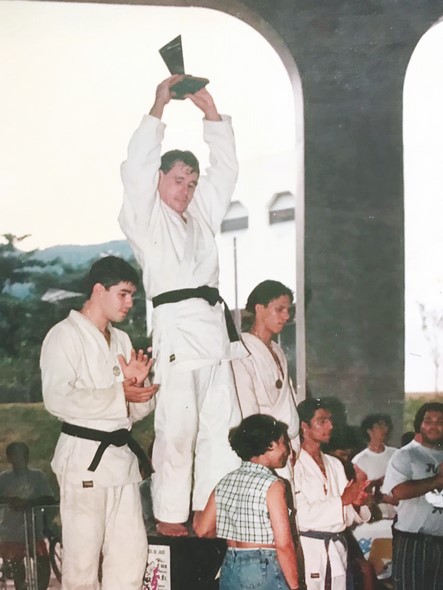
“I know mine does, but there are a lot out there who don’t. “On a broad scale, no, I don’t think managers represent fighters’ interests,” one UFC competitor said. That exchange has gone against fighters enough times to become cliche, leading participants in The Athletic’s confidential and anonymous fighter survey to indicate managers do not serve their clients well. Whatever sponsorship money they can get usually includes a 20 percent cut for managers. They present an opportunity and I’m capitalizing on that.”įor those services and a variety of others, fighters pay reps anywhere from 5 percent to north of 25 percent of their purses. I don’t think I’m leveraging anything or they’re leveraging anything. I’m giving them the best fighters in the world. “The UFC is giving my guys opportunities. “It’s a partnership that’s good for everyone,” said Abdelaziz, the firm’s founder. Gaethje is an Ali Abdelaziz fighter with the well-named Dominance MMA. Lloyd Pierson from Ballengee Group, a multi-sport firm out of Dallas, repped Ferguson.


The most important fight of that stretch was clearly Tony Ferguson’s main event against Justin Gaethje at UFC 249, which capped off the first night in two months that mixed martial artists had a chance to step inside the UFC octagon. In all, 25 managers of various prominence and scope, including three fighters who represented themselves, negotiated the appearances of the talent UFC matchmakers Sean Shelby and Mick Maynard needed to construct the most logistically challenging series of cards in the promotion’s history.įrom the biggest Hollywood talent agencies, to athlete management firms that added MMA to their portfolio, to fight-game talent evaluators and gym operators, to coach/manager types, to MMA-specific large-rostered powerhouses, to mom-and-pop shops, the fighters who secured bout agreements arrived for the trio of Jacksonville events from May 9-16. Much of the sports world was shuttered, but for several weeks, at least some of the athletes contracted to the UFC had been preparing as best they could for shifting opponents, dates and locations, all of which were postponed or canceled due to the COVID-19 pandemic.ĭespite false starts to get ahead of the reality of the times, UFC President Dana White eventually sorted out a blueprint for reopening the live sports business in the U.S., and his matchmakers were tasked with booking three cards over eight days in the open-for-business state of Florida. Sixty-eight mixed martial artists descended on Jacksonville, Fla., itching for a fight and a payday.


 0 kommentar(er)
0 kommentar(er)
